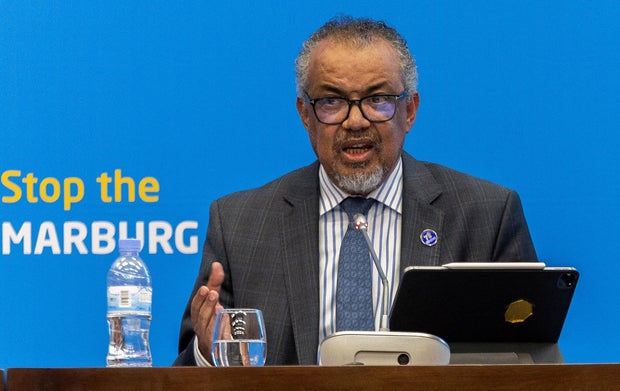Geneva – The World Health Organization said on Friday that it was reviewing its priorities in preparation for withdrawing its largest donor, the United States, and stressed that it provides vital services that protect the country from health threats. On Monday, President Trump signed an executive order Directing the United States to withdraw From the World Health Organization, the body has been repeatedly criticized over its handling of Covid-19 Pandemic.
“This announcement has made our financial situation even more dire, and we know it has created significant concern and uncertainty about the WHO workforce,” Tedros Adhanom Ghebreyesus said in a letter sent to the WHO on Thursday and seen by AFP on Friday.
He stressed that the UN health agency regretted the decision of the US leader – by far the agency’s largest donor – and hoped that “the new administration would reconsider it.”
Jan Bezimana/Reuters
“We are open to engaging in constructive dialogue to preserve the historical relationship between the United States of America,” he said.
Spokesman Christian Lindmeier confirmed to reporters on Friday that a US withdrawal would, in the agency’s view, be a mistake.
“Who protects the United States through an advanced health intelligence system that detects, characterizes, and evaluates threats in real time,” he said. He particularly pointed to the current outbreak of avian influenza (H5N1), which has infected dozens of people and claimed one life in the United States.
“We’ve actually had individuals contact us already about concerns that this may now be an issue, because the data is no longer moving forward and may not be shared,” Lindmeier said.
Tedros highlighted in his letter that the UN agency will now need to seek to identify its “key priorities.”
“We are reviewing what activities to prioritize as the resource envelope decreases,” he said.
He highlighted that the World Health Organization has recently expanded its funding base, and will continue to rely on strong support from Member States and other sources.
But he acknowledged the need to “reduce costs and achieve efficiency gains.”
Among other things, he said the agency was “freezing hiring, except in the most critical areas,” and was dramatically cutting travel expenses.
The US withdrawal would take a year to complete, and US funding would remain in place for that period, under the organisation’s rules. But Mr. Trump’s order also ordered US federal government employees to stop working with the group — something US health officials do on a wide range of health issues of global concern.
On “CBS Mornings Plus” earlier this week, CBS News chief medical correspondent Dr. John Lubbock said health experts were already concerned about the ramifications of the U.S. withdrawal.
“Public health experts I’ve talked to are concerned that we have a global leadership position on this, and if there is, say, the next pandemic, it will help in terms of communication, to communicate with everyone around the world,” Lubbock said.
While there are other ways to communicate, such as reaching out to medical communities and individuals, “it’s good to have a coordinated effort,” Lubbock said.
The White House said in a statement Monday night that the United States was withdrawing from the World Health Organization “due to the organization’s mishandling of the Covid-19 pandemic that… Originated from WuhanChina, and other global health crises, its failure to adopt urgently needed reforms, and its inability to demonstrate independence from inappropriate political influence of member states.”
https://assets1.cbsnewsstatic.com/hub/i/r/2025/01/24/53513ff4-ce1b-4b82-bc56-f6fad4cfe1fd/thumbnail/1200x630g2/ecfa6cdaa4eb9881c08cb98aeb7e5a75/tedros-who-january-2025.jpg?v=e306e7b9fefc168c00baa623d76d1eaf
Source link
